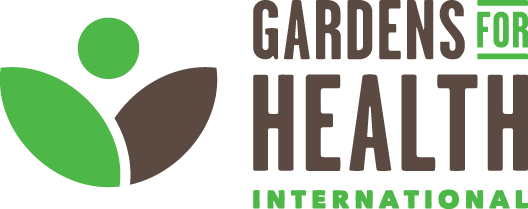Framing Our Legacy Through a Team of Nutrition Champions
The Nutrition Champions at the Musanze Exit Event, March 2022
Since 2013, Gardens For Health international (GHI) has been on a mission to fight malnutrition in Rwanda’s Musanze District in the Northern province.
When we kicked off interventions to prevent and end malnutrition among children below 10 years in Rwanda, we had a mission to create a lasting system that will continue to evolve even after years. Through time, we have worked with mothers in their first trimester of pregnancy to create awareness of the issue of malnutrition and how best we can fight it.
During an intensive 3-month training, 5000 mothers were trained to grow nutritious food and prepare healthy meals for their families and encouraged to start income generating activities that would help them to support their families in a more sustainable approach.
As a result, the mothers decided to form saving groups that would help them sustain their families and be able to provide for their families in a more sustainable approach.
They formed 45 saving groups whose membership is made up of previous graduates of our program and they have been very helpful to the mothers. They get to spend time together, plan and advise each other, but most importantly, jointly contribute to a common saving fund that they later draw from to support one another start up income generating agriculture projects.
We visited one of the saving groups, identified as Bugabo saving group located in Bugabo village, Gashaki sector of Musanze District. Since April 2020 when the group was formed, it now boasts of 30 actively involved and fully inspired mothers. The members of this saving group now look out for each other’s welfare to ensure that they all benefit from the group’s activities.
Some of the members of the Bugabo Saving Group with the GHI Field Supervisor after one of their meetings in 2022
According to Vedaste Uwumukiza, the field supervisor in Musanze District (also pictured above with some of the mothers), the saving group started as an initiative by mothers to support their husbands financially by providing for their families’ needs but also as a means to financial independence.
“
I am very confident that this group will continue to thrive on its own even after GHI has finally left Musanze District to another district. Even though sometimes I come by to see the saving group’s progress, the mothers are now operating independently and they are passionate about their families’ progress or improvement”
Two years down the line, the mothers are now role models in their communities. With time, their fellow mothers in the community realized that they no longer had to go to the local markets to buy vegetables as they used to.
Sylvie Nyirasafari, Mother of 2 and President of the Bugabo Saving Group
When other mothers visit us at home and realize that some things have changed, for instance that I don’t have to go to the market to buy vegetables anymore and I get a side income from the saving group, they want that progress too. So they eventually get interested in starting their own gardens at home. Many of them want to join our saving group too.- Sylvie, mother of 2 and President of the Bugabo Saving Group.
The Bugabo saving group kicked off with a 250 Rwf individual contribution and 50,000Rwf support fund but has now transitioned into giving out ⅓ of the members’ initial deposit to them as three months’ soft loans to any of their members who need support. The limit on the amount of money to be loaned out is used as a means to reduce chances of loss by the group.
The Bugabo group has transformed its members since its inception in an exceptional way. Besides helping them cultivate a culture of saving amongst each other, they have also started sharing profit amongst each other. Most of the members have bought livestock, or land to grow veggies at home from their profit.
“Some of us could not afford to buy seeds from the market, but because of this saving group, we no longer lack seeds. A few of us have also managed to secure pieces of land and livestock for their families”
Currently, the Bugabo saving group has accumulated over 580,000 Rwf savings with a fixed deposit of Rwf 50,000 that was contributed by Gardens For Health in support of their initiative. The group members are aware that the fixed deposit is not meant to be included in the amount to be loaned to
In partnership with the Musanze District authorities and the Government of Rwanda, Gardens For Health International is proud to have walked a 9-year journey of fighting malnutrition in Musanze District. Through combined efforts, the families we have worked with are now in a better place. We have left behind an able team of 32 Nutrition Champions who have pledged to carry on our work by supporting their fellow mothers to uplift and maintain a good nutrition status for their families while nurturing among them a culture of saving to contribute to their financial freedom and families’ sustainability.





